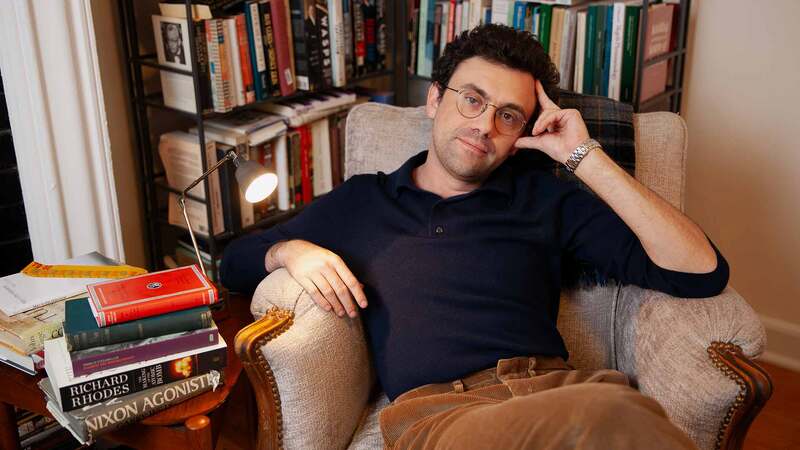You are viewing your 1 free article this month. Login to read more articles.
Films based on books take 44% more at the box office
Films based on books take 44% more at the box office in the UK and 53% more worldwide than original screenplays, research from the Publishers Association (PA) has shown.
The trade body’s landmark report titled ‘Publishing’s contribution to the wider creative industries’ has shown that films based on literary sources “tend to have substantially higher grosses” than those based on original scripts.
The new research, commissioned by the PA and produced by Frontier Economics, was launched on Tuesday (11th July) ahead of its summer reception and the House of Commons. The 21-page report explores what impact a book has when adapted for film, TV and theatre, in terms of critical and commercial success. The data was collected through a combination of qualitative interviews, case studies, publicly available information, data drawn from creative industry bodies such as the British Film Institute (BFI), the BBC, UK Theatre and Nielsen BookScan.
The research found that films based on books took 44% more box office revenue in the UK (£5.4m) and 53% more globally ($91m or £68m) than those based on original scripts.
Meanwhile, 43% of the top 20 box office-grossing films in the UK between 2007 and 2016 were based on books, with a further 9% based on comic books.
The report reads: “In short, published material is the basis of 52% of top UK films in the last 10 years, and accounts for an even higher share of revenue from these leading performers, at 61% of UK box office gross and 65% of worldwide gross.
“This share changes somewhat over time: in some years such as 2011 and 2015, two-thirds of the highest-grossing UK-produced films were adapted from published material.”
In one of the in-depth case studies, the Hollywood adaptation of “My Cousin Rachel” was shown to have a significant impact on the sales of the Daphne Du Maurier thriller. The sales of the book in 2017 alone accounted for nearly a quarter (23%) of all sales since 1992, both in terms of value and volume, according to the report.
The academic research evaluated by the report’s authors suggests that adapted films tend to perform better, particularly in terms of critical success, because films can “leverage the popularity” of bestselling or well-known books through an existing audience. Films adapted from books also tend to have a richer, more fully-developed story to draw on, according to the report.
However, it was noted that many of the previous reports on book to film adaptations focused on the US market and were published in the mid-2000s.
In terms of TV adaptation, it was revealed that almost a quarter of dramas were based on literary sources and attracted a 56% larger share of the audience than those based on original scripts, according to data from the four major free-to-air UK TV networks between 2013 and 2017.
The research, initially collected by the Broadcasters Audience Research Board and provided by Digitial.i (which measures audience data and insight), showed that 55% of literary dramas were broadcast four times or fewer, while the same can only be said of 41% of original dramas.
Fourteen of the 35 high end series produced in the UK in the period between January and September 2017 were based on books, compared to seven based on true stories or historical events and five based on pre-existing films or TV stories. Only nine were original true stories.
“Across any of the common measures of viewership, book adaptations on average outperform shows based on original scripts or on comic books and other sources,” the report reads.
Meanwhile literary-sourced shows attract 1.3m viewers more, on average, than original-script TV shows (56% higher). The report revealed that out of the top 100 dramas broadcast (by audience figures) in the UK between 2013 and 2017, book-based shows accounted for 30% of productions and 37% of viewership.
The data also showed that shows based on a literary source have received 25% of the Best Drama BAFTA awards and 57% of the relevant Emmy wins.
In the case study of “The Night Manager”, broadcast on the BBC in 2016, the research revealed that while the John le Carre novel has being in circulation for over 25 years, 82% of the copies it sold have been in 2016 and 2017 alone. Sales of the standard (non-tie-in) paperback edition have remained strong even after the series went off the air, and were nearly 10 times higher a year later (2017) than the year prior to airing (2015).
The pool of research around book adaptations in theatre was smaller as the report’s authors claimed that “no research that we are aware of has rigorously analysed the success of plays and musicals adapted from books”.
However during 2016, 27 theatre productions adapted from books generated £25.8m of revenue, according to the report.
Book-based productions make almost three times more in ticket sales than an original script, with family musicals generating 2.3 times more and plays generating 2.8 times more revenue than original shows.
Shows based on books “also tend to run for a longer period of time, with the top four longest running productions in London’s West End based on literary sources”.
The research also shows how adaptation can resurrect books which are in danger of going out of print, such as War Horse (Egmont) which was developed into a National Theatre production in 2007.
“War Horse is one of author Michael Morpurgo’s early works, published in 1982, and sales were very modest initially,” the report reads. “Some of his later works became much better known, and in fact War Horse itself was at danger of not being kept in cycle.”
Egmont saw a large spike in sales in 2007 when the play began debuted “with sustained commercial success since” according to the report.
The book had sold 16,000 copies across several editions accounting for £88,000 in sales in 2005 and 2006 combined compared to 23,000 copies for £135,000 in 2007 alone and nine years on, it is “still selling well” with 20,000 copies accounting for £121,000 in revenue in 2016 according to Nielsen data. It is Morpurgo’s best-selling work to date with total sales of 912,218 in the UK as of April 2018.
Egmont also commits to designing new covers, choosing new photos and reformatting the text to “keep it fresh” and ensure the title does looks up-to-date.
“While not involved in the adaptation process, the very fact that the publishers kept Morpurgo’s entire back catalogue in print seems to have been crucial to the book’s discovery and subsequent adaptations,” the report reads.
In conclusion, the report argues that “there is a strong two-way relationship between publishing and the wider creative economy, in particular the screen and stage industries.
“The book and film or stage worlds clearly have a reciprocal relationship, wherein a successful adaptation often has spill-over effects and gives a substantial boost to the sales of the original book,” the report reads. “This can lead to synergies between the industries – a book spawning a screen or stage version, leading to increased sales of the book, increasing an author’s likelihood of writing more stories, which could then potentially be adapted themselves.
“This is only part of the story of publishing’s overall economic contribution, but is an important one.”
It is the first time the PA has conducted a report specifically into books to film, TV and theatre adaptations and is “part of a wider strategy to better showcase the value and impact of the publishing industry and this is one of a number of reports we’ve commissioned”, a spokesperson told The Bookseller. “We knew there were significant links between publishing and these industries, but wanted detailed evidence about those connections,” they said. “The report really demonstrates just how strong these links are.”
Stephen Lotinga, c.e.o. of the PA, added: “Storytelling is at the heart of the creative industries and often the best stories begin with a book.
“This research shows the hugely positive commercial impact British publishing is having on film, television and theatre as our incredible authors’ ideas are the source of so many successful productions.
“From the sprawling Harry Potter universe to the colourful stage adaptations of Roald Dahl’s timeless stories, British books are world-leading, and hold exceptional cultural relevance on a global scale. All of this success is only possible due to our gold-standard copyright system and at a time of great change we call upon the government to do everything it can to continue to support us.”
‘Publishing’s contribution to the wider creative industries’ follows another PA report conducted by Frontier Economics published in December which explored the broader economic contribution of publishing overall.

















